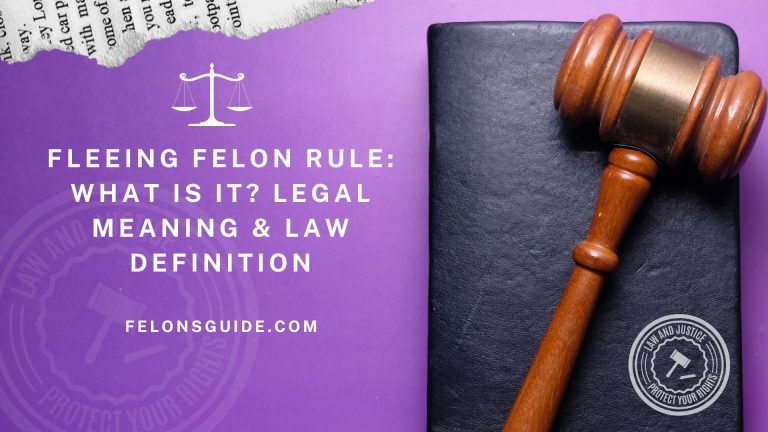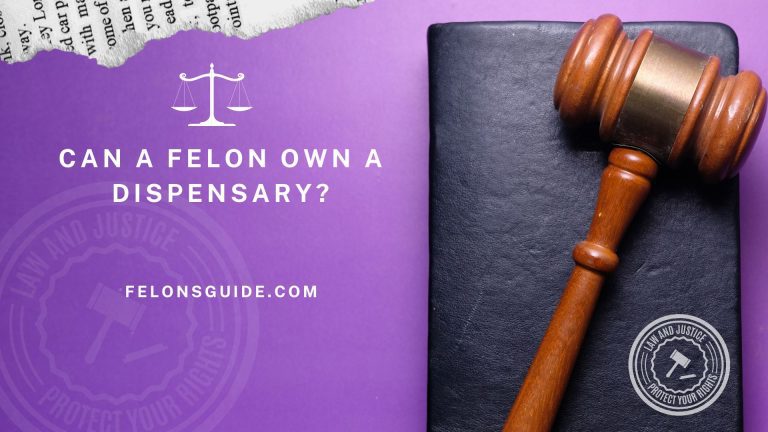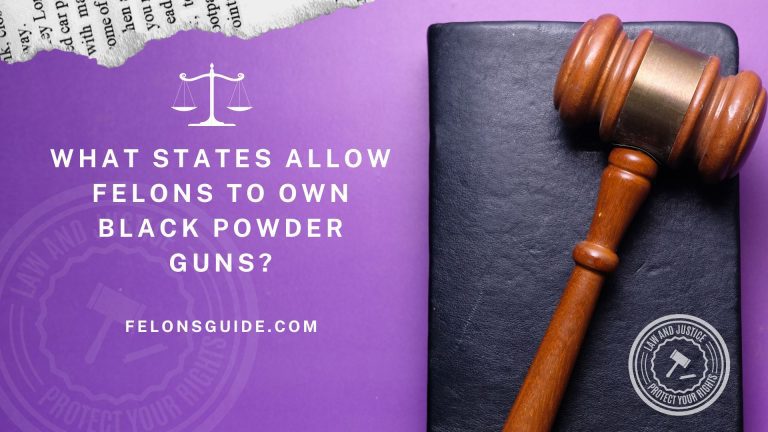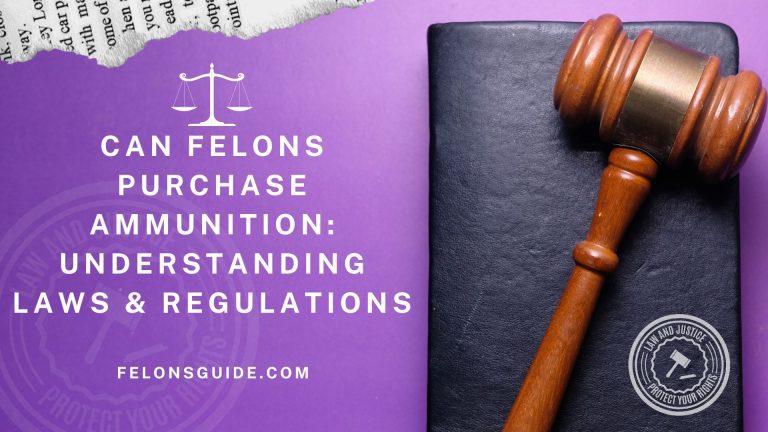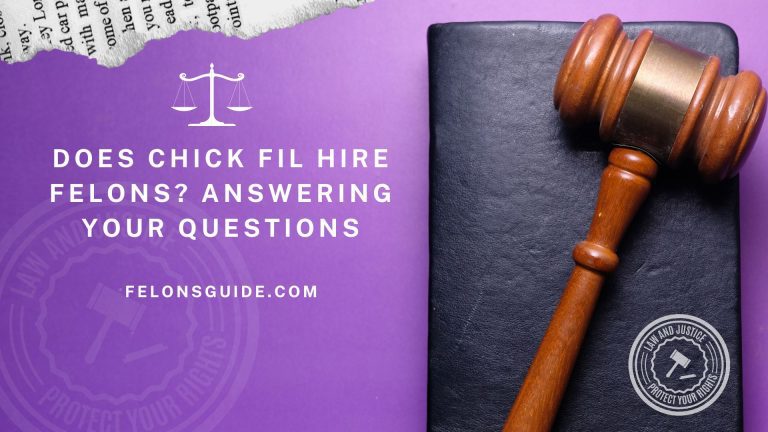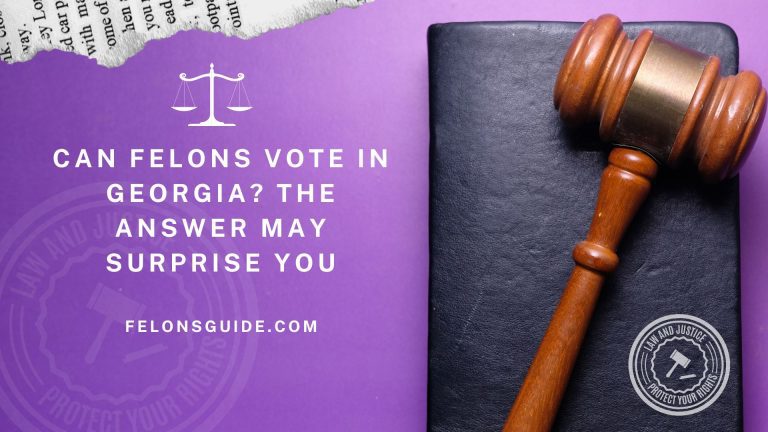Can a Felon Visit Someone in Prison? A Comprehensive Guide
Visiting a loved one in prison can be an important way to maintain connections and offer support. However, for felons themselves, the question arises: Can a felon visit someone in prison? In this article, we will provide a detailed guide to help felons understand the requirements, guidelines, and restrictions surrounding prison visitation. Whether you reside in Ohio, California, or Georgia, we will address the specific regulations in these states.
Requirements for Visiting the Prison
Before visiting a prison, certain requirements must be met. These typically include:
- Identification: Felons must possess a valid government-issued ID, such as a driver’s license or passport, to gain entry to the facility.
- Background checks: Prisons often conduct background checks on visitors to ensure the safety and security of the institution. Felons should be prepared for this process.
- Scheduling: Visitors may need to schedule their visitation in advance, adhering to designated days and hours.
General Guidelines for Visiting a Prison
To ensure a smooth visitation experience, felons should follow these general guidelines:
- Dress code: Prisons typically enforce a dress code, which may require visitors to dress modestly and avoid clothing that resembles inmate attire.
- Behavior expectations: Visitors must maintain proper decorum during their visit, refraining from disruptive or inappropriate behavior.
- Prohibited items: Certain items, such as weapons, drugs, or electronic devices, are not allowed within the prison premises. Visitors should familiarize themselves with the specific prohibited items list.
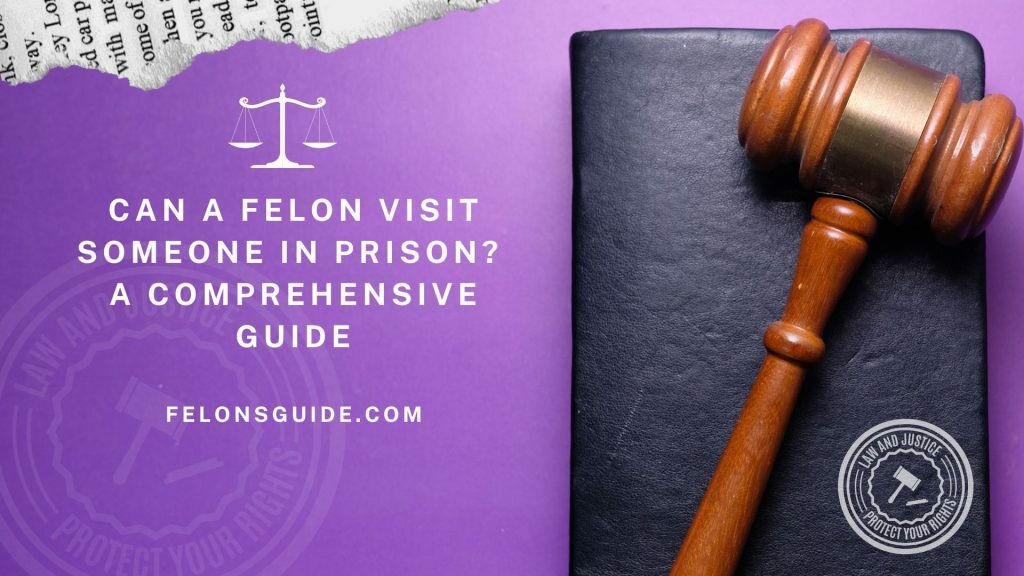
Factors Preventing Ex-Felons from Visiting Imprisoned Inmates
While the ability for felons to visit someone in prison varies, several factors may prevent their visitation rights. These factors include:
- Parole or probation restrictions: Felons under parole or probation supervision may have limitations placed on their ability to visit prisons.
- Conviction type: Some convictions may disqualify felons from visiting inmates, particularly if the crime involved a threat to the safety or security of the facility.
Also Read: Can a Felon Own a Flamethrower? Exploring Legal Restrictions and Considerations
Reasons behind Application Rejection
Prison authorities have the discretion to reject a felon’s visiting application based on various reasons, including:
- Outstanding warrants: If a felon has an outstanding warrant, it can result in the rejection of their visitation application.
- Violation of visitation rules: Previous violations of visitation regulations, such as attempting to smuggle contraband or engaging in disruptive behavior, can lead to a rejected application.
- Security concerns: If prison authorities believe a felon’s visitation poses a security risk or jeopardizes the safety of the facility, the application may be denied.
Also Read: Can Felons Have Fireworks? Understanding the Legalities and Restrictions
Can a Felon Visit Someone in Prison in Ohio?
In Ohio, felons can visit someone in prison, but specific regulations and restrictions apply. It is crucial for felons to familiarize themselves with Ohio’s visitation guidelines, which may include additional requirements or limitations.
Can a Felon Visit Someone in Prison in California?
California has its own set of regulations regarding felons visiting someone in prison. While the state allows visitation for felons, it is essential to understand the specific rules and restrictions in place.
Can Felons Visit Inmates in Georgia?
Similarly, felons in Georgia may have the opportunity to visit inmates, provided they adhere to the state’s visitation guidelines. Understanding the specific requirements and restrictions in Georgia is crucial for felons planning a visit.
Conclusion:
Visiting a loved one in prison is a meaningful way to maintain connections, but felons must navigate specific requirements and restrictions. By understanding the general guidelines, reasons for application rejection, and state-specific regulations in Ohio, California, and Georgia, felons can make informed decisions when planning a visitation. Remember, the ability for felons to visit someone in prison varies, and it is essential to consult the respective state’s guidelines and contact the prison facility for accurate and up-to-date information.
